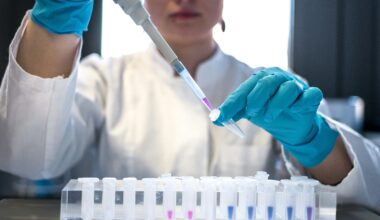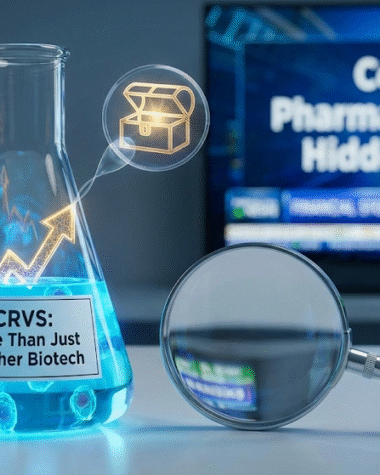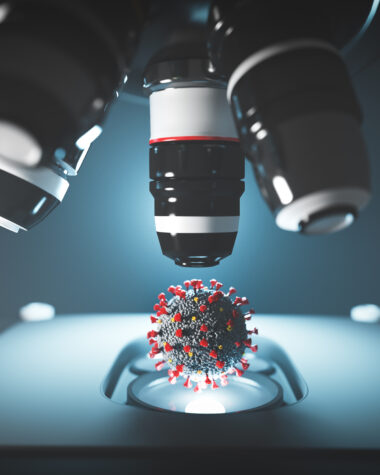Corvus Pharmaceuticals, Inc. (NASDAQ:CRVS) is a clinical-stage biopharmaceutical company headquartered in South San Francisco, California, dedicated to pioneering novel therapies that harness the power of the immune system to treat cancer, autoimmune, and inflammatory diseases. Founded with a mission to explore innovative pathways in immunology, Corvus has centered its research around the inhibition of ITK (interleukin-2-inducible T-cell kinase), an enzyme that plays a critical role in regulating T-cell differentiation and function. By focusing on precise T-cell modulation, the company aims to address conditions where immune system imbalances drive disease progression, including both hematologic cancers and autoimmune disorders.
The company’s lead product candidate is soquelitinib, an investigational oral small molecule drug designed to selectively inhibit ITK. This mechanism of action is intended to shift immune balance toward Th1 T helper cells, which are required for immunity against tumors and viral infections, while suppressing Th2 and Th17 cells, which are often implicated in allergic and autoimmune conditions. With this dual potential, soquelitinib is being evaluated across a range of indications, from atopic dermatitis and systemic sclerosis to relapsed and refractory peripheral T-cell lymphoma (PTCL). This breadth underscores Corvus’s belief in ITK inhibition as a transformative therapeutic approach capable of impacting multiple disease areas.
Beyond soquelitinib, Corvus maintains a pipeline of other immunotherapy candidates, including ciforadenant, an adenosine A2A receptor inhibitor being studied in combination with checkpoint inhibitors for renal cell carcinoma, and mupadolimab, an anti-CD73 antibody that is designed to stimulate B cells and enhance anti-tumor immunity. These programs reflect the company’s broader strategy of targeting key immune regulatory pathways that can overcome resistance to current therapies and expand treatment options for patients with difficult-to-treat conditions.
Corvus also benefits from a strategic partnership with Angel Pharmaceuticals in China, where its clinical programs are being expanded to further validate its drug candidates in diverse patient populations. Through this collaboration, Angel Pharmaceuticals is advancing several of Corvus’s candidates, including soquelitinib, ciforadenant, and mupadolimab, across cancer and immunology indications. Corvus maintains a significant equity stake in Angel, strengthening its long-term position while leveraging external investment and infrastructure to broaden its development footprint.
While still in the development stage and without approved commercial products, Corvus has earned recognition for advancing the understanding of ITK biology and its role in immune modulation. The company’s early clinical data has generated interest in the scientific community, particularly for conditions with high unmet medical need such as PTCL and severe autoimmune diseases. However, as with many clinical-stage biotech firms, the company’s long-term success depends on the successful progression of its pipeline through rigorous clinical trials, regulatory approvals, and eventual commercialization.
Rising Clinical Momentum but Still Early Stage
The centerpiece of Corvus’s pipeline is soquelitinib, a selective ITK inhibitor under investigation for both immune diseases and cancers. Interim results from cohort 3 of its Phase 1 trial in atopic dermatitis were highlighted as showing earlier and deeper responses, with a 64.8% mean reduction in EASI scores versus 34.4% for placebo. Itch relief was also reported as early as day 8, with 50% of patients achieving a clinically meaningful reduction in pruritus scores. These findings suggest potential differentiation, but it is critical to note that these are small patient cohorts, short treatment windows, and early data that may not translate into Phase 2 or Phase 3 efficacy.
Corvus has begun enrolling patients in an extension cohort (cohort 4), which will test the same 200 mg twice-daily dose over an 8-week treatment period instead of 4 weeks. While longer duration may show stronger results, it also carries greater risk of adverse events. Meanwhile, Angel Pharmaceuticals, Corvus’s partner in China, is preparing to launch a Phase 1b/2 trial that will expand dosing and treatment duration. Although expansion abroad provides validation, it also highlights the reliance on external partnerships to expand development bandwidth.

CHECK THIS OUT: Saudi Arabia Wants CEL-SCI (CVM)’s Multikine Now! and Aligos Therapeutics (ALGS) Doubles Cash to $122.9M.
Expanding Trials Across Multiple Indications Adds Pressure
Beyond atopic dermatitis, soquelitinib is being advanced in hematology and oncology. The company has initiated a Phase 3 registrational trial in relapsed/refractory peripheral T cell lymphoma (PTCL), a notoriously difficult-to-treat cancer with no FDA-approved therapies based on randomized studies. The trial design pits soquelitinib against physician’s choice of belinostat or pralatrexate, with progression-free survival as the primary endpoint. While the unmet need is significant, the bar for success in PTCL is high, and competing therapies are also in development. Failure in this indication would undermine a major pillar of the Corvus investment story.
In addition, Corvus is pursuing a Phase 2 trial in autoimmune lymphoproliferative syndrome (ALPS) in collaboration with the National Institute of Allergy and Infectious Diseases (NIAID). While this rare genetic disorder represents another niche opportunity, the commercial upside is limited relative to development costs. Taken together, the strategy of pushing soquelitinib into multiple indications creates diversification but also stretches resources across high-risk programs.
Financial Performance Highlights Growing Strain
The financial results from the second quarter of 2025 reveal significant challenges. Corvus reported a net loss of $8.0 million, compared to a net loss of $4.3 million in the same period of 2024. Research and development expenses nearly doubled to $7.9 million, reflecting increased trial activity and manufacturing costs. General expenses also rose, further straining the bottom line.
Cash, cash equivalents, and marketable securities totaled $74.4 million as of June 30, 2025, boosted by the exercise of common stock warrants that provided $35.7 million in proceeds. While management has guided that this cash runway extends into the fourth quarter of 2026, the pace of cash burn and the expansion of clinical programs make this estimate vulnerable. If trial costs escalate or timelines slip, Corvus may need to raise additional capital, which could lead to shareholder dilution.
Market Competition and Regulatory Hurdles
The enthusiasm around soquelitinib must be tempered by the competitive landscape. In atopic dermatitis, the company faces entrenched biologics such as Dupixent and newer oral agents like JAK inhibitors, which already enjoy widespread physician adoption and reimbursement support. To gain meaningful share, soquelitinib will need to demonstrate not only strong efficacy but also superior safety and tolerability over longer treatment durations.
In oncology, particularly PTCL, the company is entering a space where the regulatory bar is steep. The FDA has granted Orphan Drug and Fast Track designations for soquelitinib, but designation alone does not guarantee approval. Moreover, with multiple trials underway across the U.S. and China, consistency of results and management of regulatory requirements across jurisdictions add further risk.
Cash Runway and Dilution Overhang
While Corvus’s management emphasizes that cash is sufficient into late 2026, investors should remain cautious. Biopharma companies often underestimate trial expenses and overestimate runway. With multiple Phase 2 and Phase 3 programs running concurrently, costs will mount rapidly. Past reliance on warrant exercises for cash inflows highlights the likelihood of future equity raises. Each raise dilutes existing shareholders, especially if conducted at depressed share prices, which is a persistent risk for early-stage biotech companies without revenue.
Net Loss Trajectory Suggests Ongoing Struggles
The widening net loss underscores the financial vulnerability of Corvus. Even after accounting for non-cash items such as warrant liability adjustments, the company’s core operations are increasingly costly. With limited non-dilutive funding options, reliance on capital markets remains a structural weakness. Unless soquelitinib delivers compelling Phase 2 or Phase 3 results, investor sentiment could sour further, making future fundraising both more dilutive and more challenging.
Conclusion: Early Promise Overshadowed by Heavy Risks
Corvus Pharmaceuticals positions itself as a pioneer in ITK inhibition, with soquelitinib at the forefront of its efforts in immune diseases and oncology. Early Phase 1 data in atopic dermatitis shows promise, and ongoing trials in PTCL and ALPS broaden the opportunity set. However, the risks are substantial. Rising operating losses, a limited cash runway, dilution risk, early-stage data, competitive market pressures, and regulatory hurdles all cloud the outlook.
For investors, CRVS represents a speculative bet where upside is tied to the successful progression of soquelitinib through multiple clinical milestones. Yet, the downside is steep, with financial realities and clinical uncertainty outweighing the optimism of early data. Unless future results decisively confirm the drug’s efficacy and safety, Corvus may struggle to justify its valuation and sustain investor confidence.
READ ALSO: Exact Sciences (EXAS) Just Made Cancer Detection 100x Easier! and Soleno Therapeutics (SLNO): The Biotech Company That Could Make You Rich.








